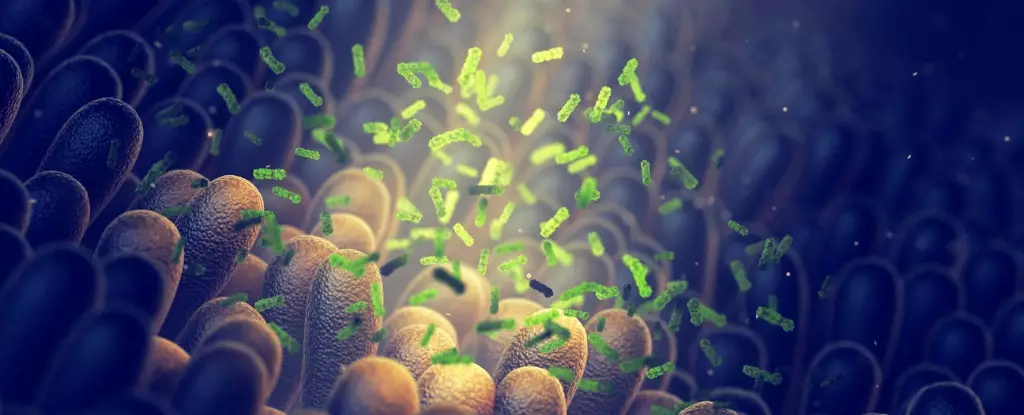In a world where bacteria are developing resistance to antibiotics at an alarming rate, scientists are looking for innovative solutions to combat this growing threat. One such solution lies within the human gut, a complex environment teeming with over 100 trillion microbes. By analyzing gut microbiomes from 1,773 individuals, researchers in the US have identified a wealth of proteins with potential antibiotic properties.
Out of the 444,054 proteins examined, 78 candidates stood out as particularly promising. Upon further analysis and testing in the lab, a staggering 70.5 percent of these proteins demonstrated the ability to combat harmful microbes, suggesting their potential use in the development of new antibiotics. Among the most notable discoveries was a protein called prevotellin-2, which exhibited bacterial-killing abilities comparable to that of polymyxin B, a commonly used antibiotic for drug-resistant infections.
Bioengineer César de la Fuente from the University of Pennsylvania emphasized the importance of utilizing biological information as a source for discovering new antibiotics. By employing sophisticated algorithms to decipher the genetic code of these proteins, researchers can accelerate the process of antibiotic development. This approach not only showcases the vast potential of the human microbiome but also offers a glimpse into the diverse range of bug-fighting substances it harbors.
Interestingly, the identified proteins do not conform to conventional antimicrobial molecules, indicating a novel class of antibiotics with unique properties. This unconventional composition could pave the way for groundbreaking approaches to combating antibiotic-resistant bacteria. Bioengineer Marcelo Torres highlighted the significance of expanding the sequence space of antimicrobials, underscoring the transformative impact of these newly discovered compounds.
While the road to converting these proteins into viable antibiotics presents numerous hurdles, the initial findings hold immense promise. The urgency of addressing antibiotic resistance, a global health crisis attributed to millions of deaths, underscores the critical need for innovative solutions. By tapping into the natural reservoir of antibiotic sources within the human gut, researchers are poised to revolutionize the field of antimicrobial therapy.
As scientists strive to outpace the relentless evolution of bacteria, the quest for effective antibiotics remains a constant challenge. The harsh and competitive environment of the gut, where diverse microbial communities coexist and compete, offers a rich source of inspiration for developing targeted drugs. The ongoing research not only reaffirms the resilience of the human microbiome but also reinforces the potential of harnessing its intrinsic abilities to combat infectious diseases.
The groundbreaking discoveries in antibiotic research underscore the untapped potential of the human gut as a source of novel antimicrobial agents. By leveraging the intricate interplay of microbes within our bodies, researchers are paving the way for transformative advancements in the fight against antibiotic resistance. This innovative approach heralds a new era in antibiotic discovery, offering hope for a brighter and healthier future.


Leave a Reply